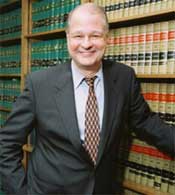BY LINDA BENTLEY | MARCH 13, 2013
Federal judge upholds law prohibiting TUSD’s Raza Studies program
In its ruling, the court called for the development of culturally relevant courses, an order appealed by Horne
 School District’s Raza Studies program, which was found to be in violation of A.R.S. § 15-112, passed to ensure public education is not used to promote radical, political, race-based elements.
School District’s Raza Studies program, which was found to be in violation of A.R.S. § 15-112, passed to ensure public education is not used to promote radical, political, race-based elements.
PHOENIX – On March 8, U.S. District Judge A. Wallace Tashima upheld an Arizona law, prohibiting courses that teach ethnic solidarity as constitutional, with the exception of (A)(3), the wording of which the court found to be broad and ambiguous, and could deter school districts from teaching ethnic studies.
A.R.S. § 15-112(A) states:
A school district or charter school in this state shall not include in its program of instruction any courses or classes that include any of the following:
• Promote the overthrow of the United States government.
• Promote resentment toward a race or class of people.
• Are designed primarily for pupils of a particular ethnic group.
• Advocate ethnic solidarity instead of the treatment of pupils as individuals.
 Arizona Attorney General Tom Horne (r) , who was then Arizona Superintendent of Public Instruction, made the original finding that Tucson Unified School District’s (TUSD) Raza (Race) Studies program, later renamed Mexican-America Studies (MAS), was in violation of the law.
Arizona Attorney General Tom Horne (r) , who was then Arizona Superintendent of Public Instruction, made the original finding that Tucson Unified School District’s (TUSD) Raza (Race) Studies program, later renamed Mexican-America Studies (MAS), was in violation of the law.
 Horne’s successor, Superintendent John Huppenthal (l), upheld those findings.
Horne’s successor, Superintendent John Huppenthal (l), upheld those findings.
While recognizing the defendants’ actions could appear to be a misunderstanding of the purpose and value of ethnic studies, as well as suggesting an insensitivity to the challenges faced by minority communities in the United States, Tashima said, “Nevertheless, these concerns do not meet the high threshold needed to establish a constitutional violation, with one exception. Instead they are issues that must be left to the State of Arizona and its citizens to address through the democratic process.”
In December 2010, Horne issued a finding that TUSD’s MAS program violated Sections (A)(2), (3) and (4) and ordered TUSD to come into compliance with statute within 60 days.
In June 2011, Huppenthal, Horne’s successor, issued a second finding that TUSD was in “clear violation.”
Then on Dec. 27, 2011, an administrative law judge (ALJ) concluded the MAS program violated Sections (A)(2), (3) and (4), after which Huppenthal issued an order accepting the ALJ’s recommended decision.
Failure to either bring MAS into compliance or eliminate the program, TUSD faced the loss of 10 percent of the district’s state funding.
And while the student plaintiffs claimed the law violated their free speech rights in the classroom, Tashima noted A.R.S. § 15-111 codified, “public school pupils should be taught to treat and value each other as individuals and not be taught to resent or hate other races or classes of people.”
He wrote, “This preamble, with its focus on what can and cannot be taught in the schools, further underscores that the statute targets programs of instruction and curricula, rather than student speech in the classroom.”
In a statement issued by on Monday, Horne said, “This is a victory for ensuring that public education is not held captive to radical, political elements and that students treat each other as individuals – not on the basis of the race they were born into.”
In a related case, a federal court barred the State of Arizona from intervening in Mendoza, et al v. Tucson Unified School District, a segregation case filed by MALDEF (Mexican American Legal Defense and Education Fund) in 1974 on behalf of Latino parents and students.
In 1978 the parties settled with a stipulation that required the district to employ specific remedies, including the reassignment of students through voluntary and mandatory busing and the closure of segregated schools.
Although the district was to come into compliance within five years, 30 years later, the court found the district was still out of compliance.
In its ruling, the court called for the development of culturally relevant courses, an order appealed by Horne.
The order also stated, “The state is free to enforce its laws as it did in 2011 when it took action against TUSD for MAS courses, if it believes any culturally relevant courses developed and implemented in TUSD violate state law.”



